Ukraine conflict: Shock and support on the streets of Moscow
- Published
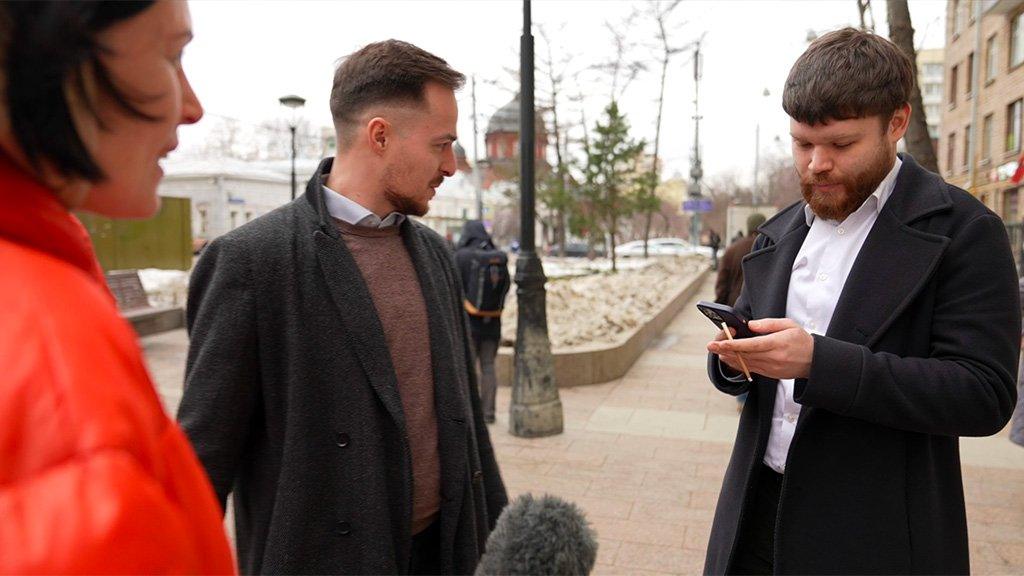
These two friends were still trying to absorb what has happened
Shock, horror and bewilderment - three words that could describe the mood of many in the capital Moscow and the southern city of Rostov on Thursday. But there is division over whether President Putin's actions are to be condemned or applauded, BBC Russian reporters discover.
When two young well-dressed men stop to chat to the BBC, one of them appears fairly relaxed about the invasion of Ukraine.
"Yes, we heard something but haven't had a chance to understand what's going on," he says.
But he is soon interrupted by his friend, swearing as he does so.
"We are shocked," he says. "We have never seen war in our lifetime and we are about to see one."
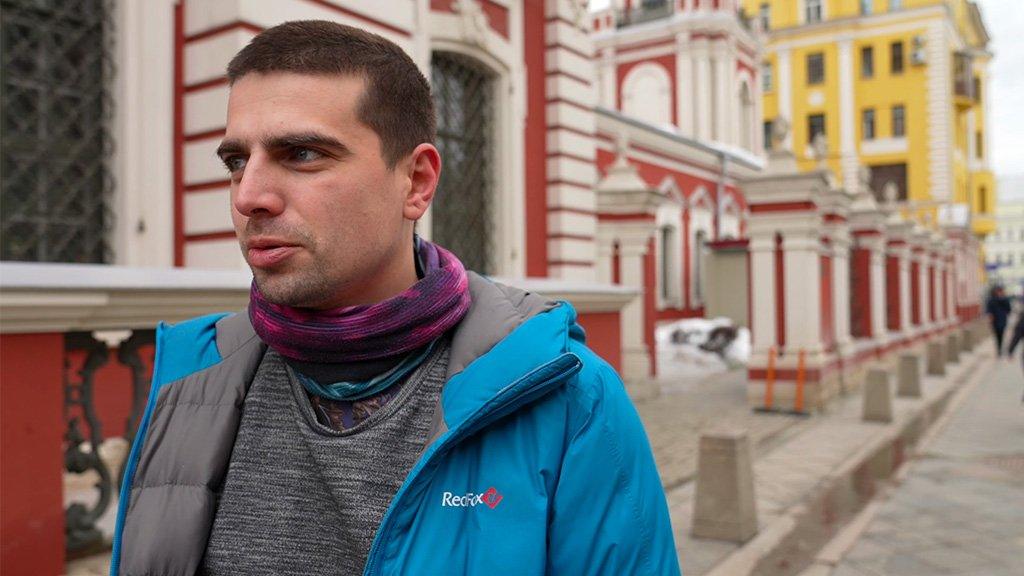
This man said he and his friends felt ashamed by the government's actions
A man in a bright blue coat looks miserable.
"It is not clear what to do and it is very scary," he says. "But apart from the fear, there is a sense of horror and a sense of shame about what our authorities are doing. In my circle of friends this is a very common feeling.
"I never voted for those who are in power now," he adds, "and I did what I could, what a person in Russia is currently able to do to affect political life - went to protests. But I don't think there will be any now. Everyone is much too scared."
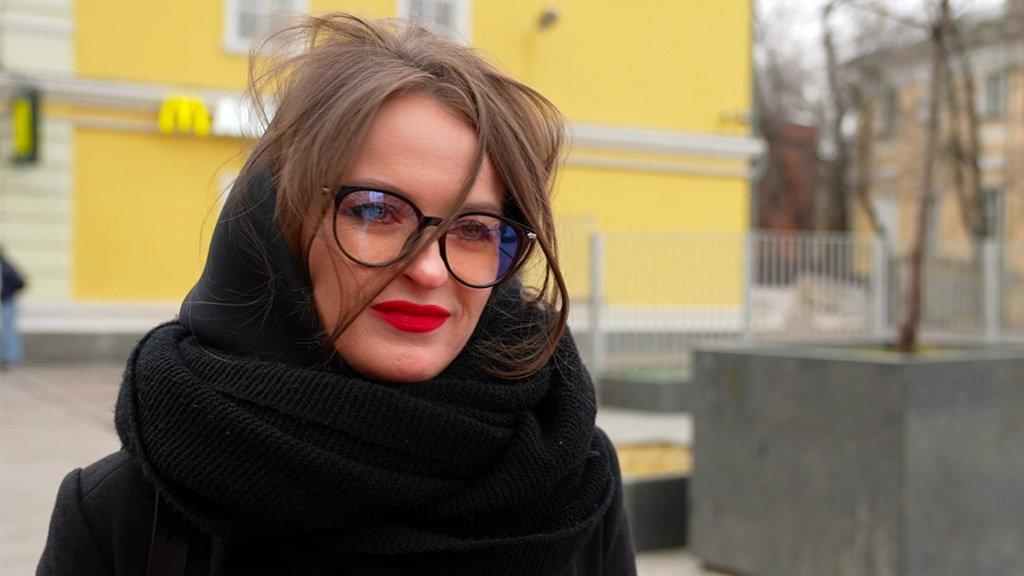
This woman said politicians were thinking of themselves rather than the public
One woman is not certain what to make of the news, although she is generally against the war. "It's politicians trying to sort things out between themselves and ordinary people who are suffering. It won't do any good for my family."
Some of those against the invasion have gathered in Pushkin square in the centre of Moscow to protest. The BBC Russian's Anastasia Golubeva estimates there were initially more than 200 people assembled before police instructed people to move on.
Anyone starting to shout "No to war!" was being detained.
One young man told the BBC, "I have been crying all day. People in Ukraine are dying. Children are dying. Men who fight are dying. And then what? We, young Russian men, 19-20 years old will be packed off to fight too?"
Asked if he and his friends were scared to come to the rally, he said, "No. This is not frightening. What is happening in Ukraine and its borders is frightening. What we have here now is nothing."
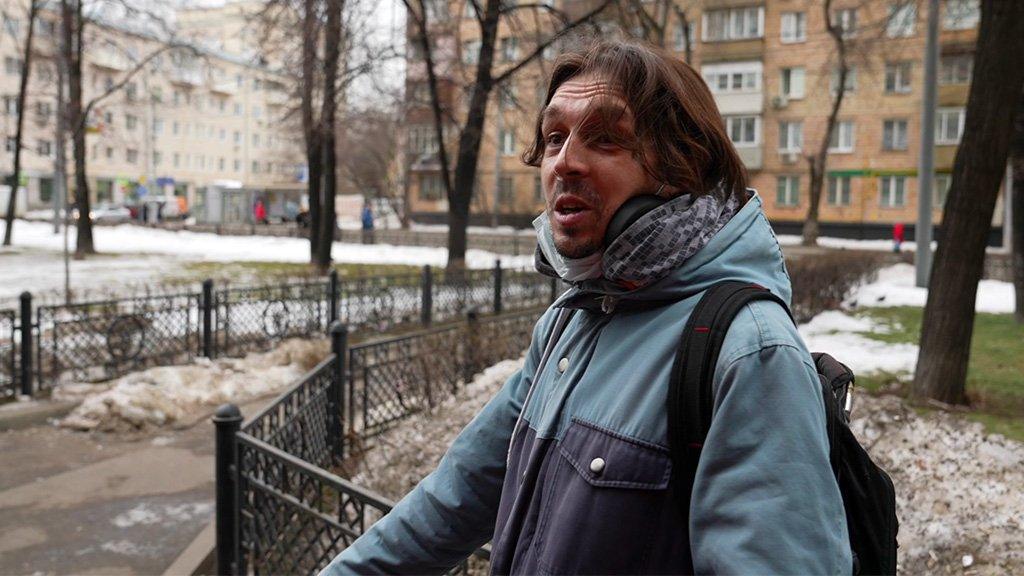
This man was unusually vocal about his opposition to Putin
Away from the protest, a man in a pale blue and navy coat says he supports both Ukraine and Russia but does not support Russia's President Putin. Such a bold public statement is rarely heard in Russia these days.
"This is done in order to satisfy the geopolitical ambitions of our leader," he says.
But three older people - two middle aged men and an elderly woman - are much more supportive of the invasion.
A man in a baseball cap talks about "protecting Russians" in Ukraine. He blames Ukrainians themselves and says that it's "their own fault that they ended up in this situation".
"They have always been problematic, throughout history," he says.

Russia attacks Ukraine: More coverage
THE BASICS: Why is Putin invading Ukraine?
VISUAL GUIDE: Tracking the invasion in maps
FROM KYIV: Sheltering from rockets in basements

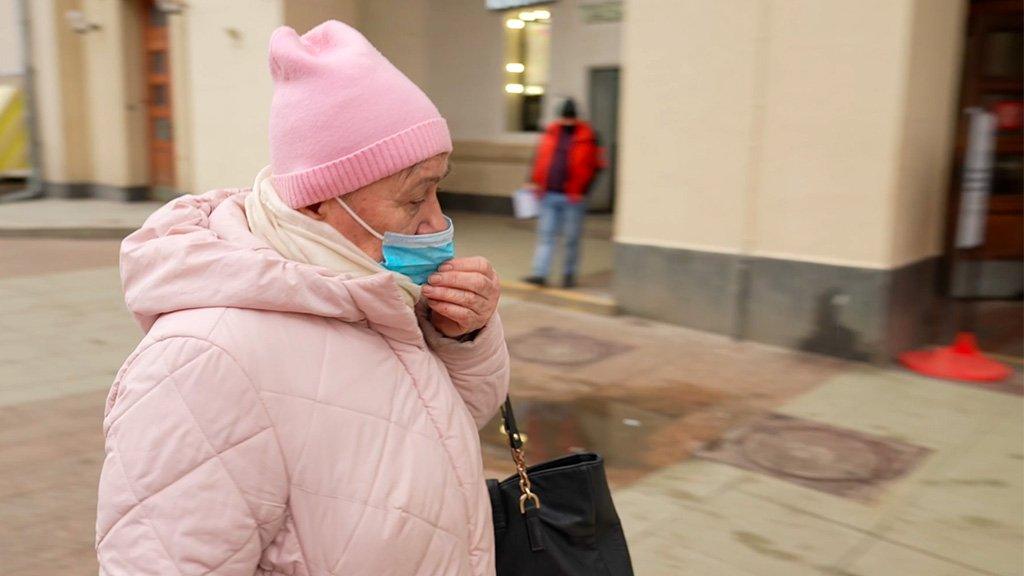
This woman was extremely vocal about her opposition to Ukraine
A woman in a pink coat and hat also refers to Russians in Ukraine. "There are Russian people living there," she says.
But what about the Ukrainians living there, we ask?
"Ukrainians are mostly terrorists," she snaps, adding that she gets this information from state TV and YouTube.
"It's a bid for peace," says another elderly man. "It's all going to be fine afterwards."
In Rostov, a region in the south of Russia which has been hosting evacuees from the separatist-held areas in Ukraine, the mood is even more apprehensive than in Moscow.
A woman in a bright-red coat is not sure what to make of the events.
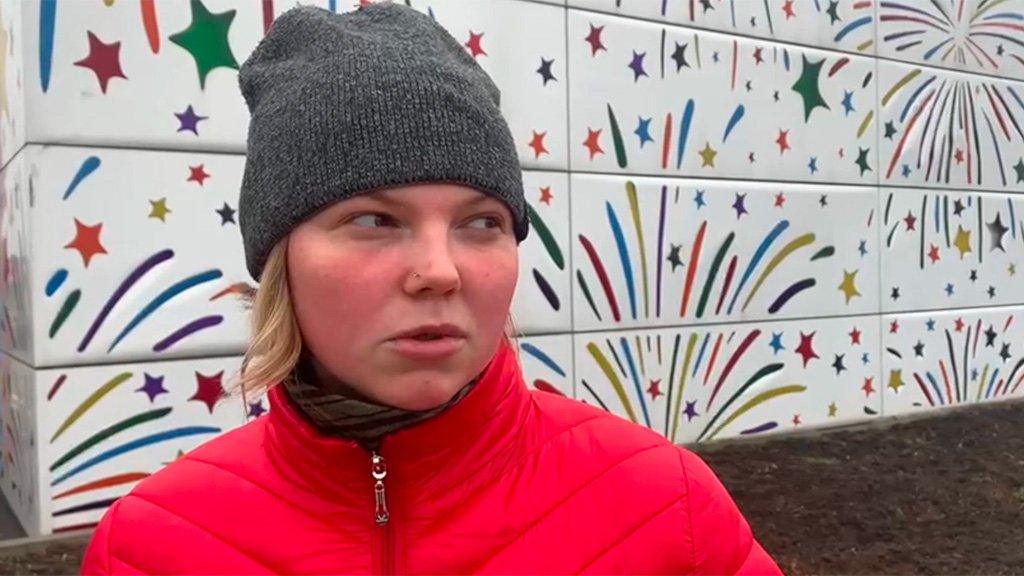
This woman in Rostov said she was afraid
"We are worried about what's happening because it is so close to us. But also we are not completely sure what happened, she adds. "We don't really believe the news we see on TV."
A young woman in a grey woolly hat and red parka looks glum. "It is very scary. Makes us worried about our children."
An older grey-haired man with bright dark eyes cannot hide his sadness.
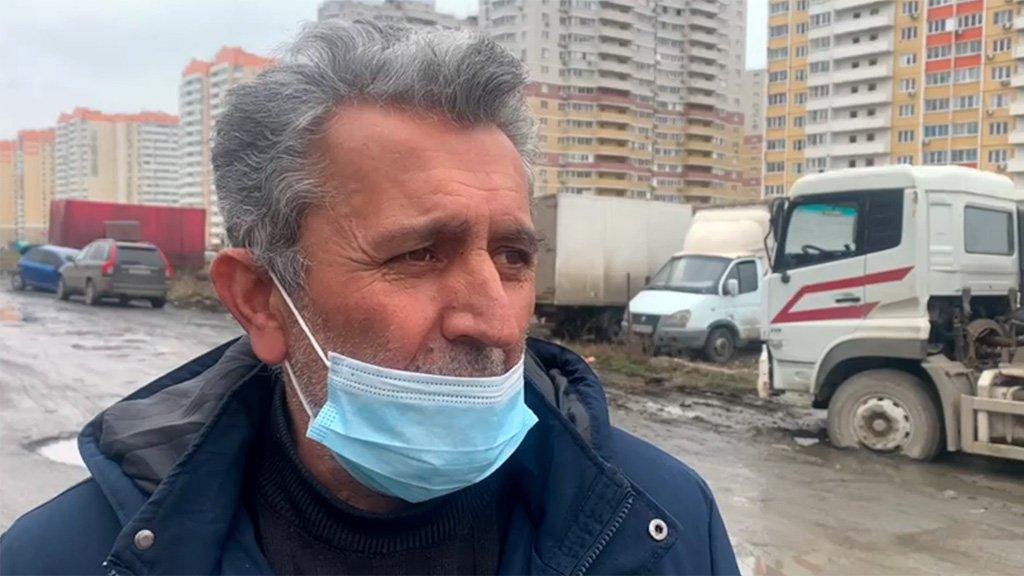
This man seemed devastated by the events
"We once won an immense war and we are now at war between ourselves?" he asks rhetorically.
More certain that the chosen course of action is the right one is a young woman in a knitted hat and fur-trimmed coat. "It is only fair," she says. "What's happening now. What's been taken away is now being returned to us."
A woman in a raspberry pink coat with her glasses perched on her face mask is also sure the invasion was a good call. "We will survive just fine, she says. We have a big country, rich in resources. No-one will be able to bring us to our knees with sanctions."